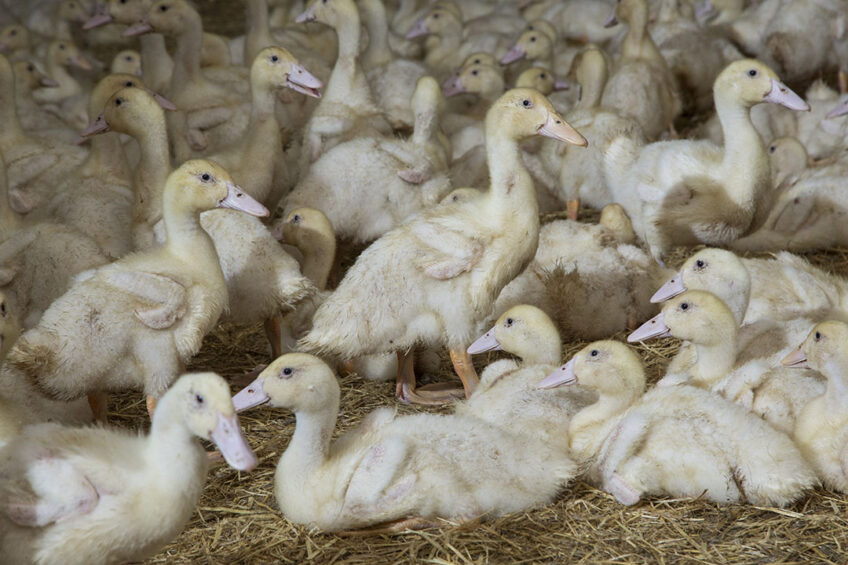France first in EU to order avian influenza vaccines

France has launched a tender for 80 million doses of avian influenza vaccines as the country prepares to begin a vaccination programme this autumn. This is the first member of the EU to start such a scheme, reports Reuters.
With millions of commercially raised birds affected by avian influenza on thousands of premises in major poultry-producing nations worldwide, the call for a solution is getting louder, and vaccination is becoming the most likely scenario. Until now, governments have hesitated to roll out vaccination programmes, primarily due to any possible impact this could have on poultry trade.
French duck sector severely impacted
However, as reported by Poultry World in August, of the poultry outbreaks until that time, the worst affected country was France with 68% of recent cases. The country remained the worst effected by bird flu of all the EU member states, with the country reportedly culling more than 21 million birds.
The pre-order, which is to be confirmed if the final test results are positive, is aimed at vaccinating ducks only.
Vaccines by Ceva Animal Health and Boehringher Ingelheim
France has mandated 2 companies, France’s Ceva Animal Health and Germany’s Boehringher Ingelheim, to develop the avian influenza vaccines. Both vaccines have been found to be effective in protecting birds against the virus itself and – more importantly – also prevented birds from shedding the virus.
Adopting a preventive vaccination strategy
“Health crises caused by avian influenza have been recurring and growing in scale, which means that preventive measures on French poultry farms need to be reinforced,” French health and safety agency, ANSES, stated. The agency highlighted that vaccination should be seen as a measure intended to supplement the preventive biosecurity measures taken in the field.
ANSES, which the ministry had tasked with presenting a range of vaccination strategies, has urged against emergency vaccination. Caroline Boudergue, deputy head of ANSES’s unit for the assessment of risks associated with animal health, welfare and nutrition, and vectors, said: “We have not chosen the solution of emergency vaccination because of the long period between the vaccination of an animal and its protection against the virus; it takes an estimated 3-4 weeks for this immunity to be acquired. Furthermore, vaccinating animals in the middle of an animal epidemic tends to increase the flow of people on farms and therefore the risk of biosecurity breaches.”
Bird flu vaccination scenarios proposed
ANSES has proposed 3 scenarios regarding the risk of introduction and spread of highly pathogenic avian influenza, established according to a graduated approach based on the means available for vaccination:
- Scenario 1: Vaccinate animals present on nucleus and multiplier farms for all sectors. This step has the advantage of requiring a limited number of doses of a vaccine. It can also protect French poultry sectors from the impact of a new animal epidemic by preserving genetic potential and the ability to put animals back onto production farms once the epidemic is over.
- Scenario 2: On production farms, vaccinate ready-for-gavage water fowl (ducks and geese), other free-range water fowl, free-range turkeys, and pre-adult layers (pullets) intended for free-range farming. The objective is to limit the scale of outbreaks by targeting the production sectors where the virus is most likely to be introduced and spread. This scenario requires that vaccines be more widely available than in Scenario 1.
- Scenario 3: If enough vaccines are available, vaccinate water fowl raised for meat production, turkeys raised in confinement (in buildings), free-range broiler Galliformes other than those listed for Scenario 2, and free-range laying hens.
Ensuring effectiveness of bird flu vaccination
The effectiveness of the proposed scenarios will depend on numerous assumptions and conditions, note ANSES:
- The epidemiological context in autumn 2023 will be the same as that observed today (H5N1 viral strain similar to the one that circulated during the 2022-2023 season).
- The available supply of vaccines will allow each species to be vaccinated and will induce collective immunity.
- The vaccination strategy will be consistent with the time required to acquire immunity after administration of the vaccine and with the duration of protection provided by the vaccine.
- The vaccination strategy will be compatible with farming practices, particularly from a logistical and economic point of view.
The agency also noted that if vaccination is implemented, it will require a reinforced surveillance protocol for vaccinated farms, “so that those animals that are nevertheless infected may be identified and culled as quickly as possible”.
Broilers not included
Reuters highlights that none of the scenarios involves vaccinating broilers, which it says account for the majority of France’s poultry, and that the government tends to at least partly follow ANSES recommendations.












